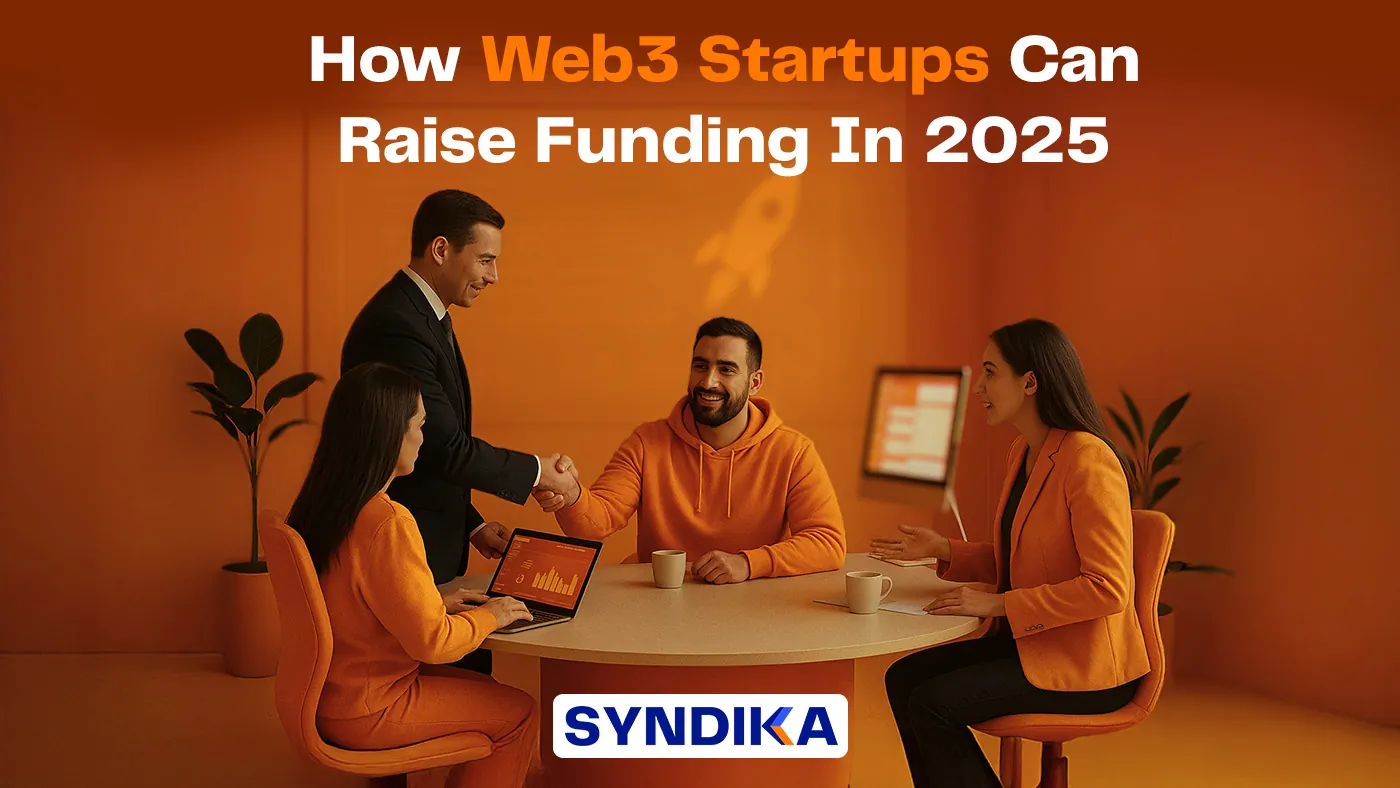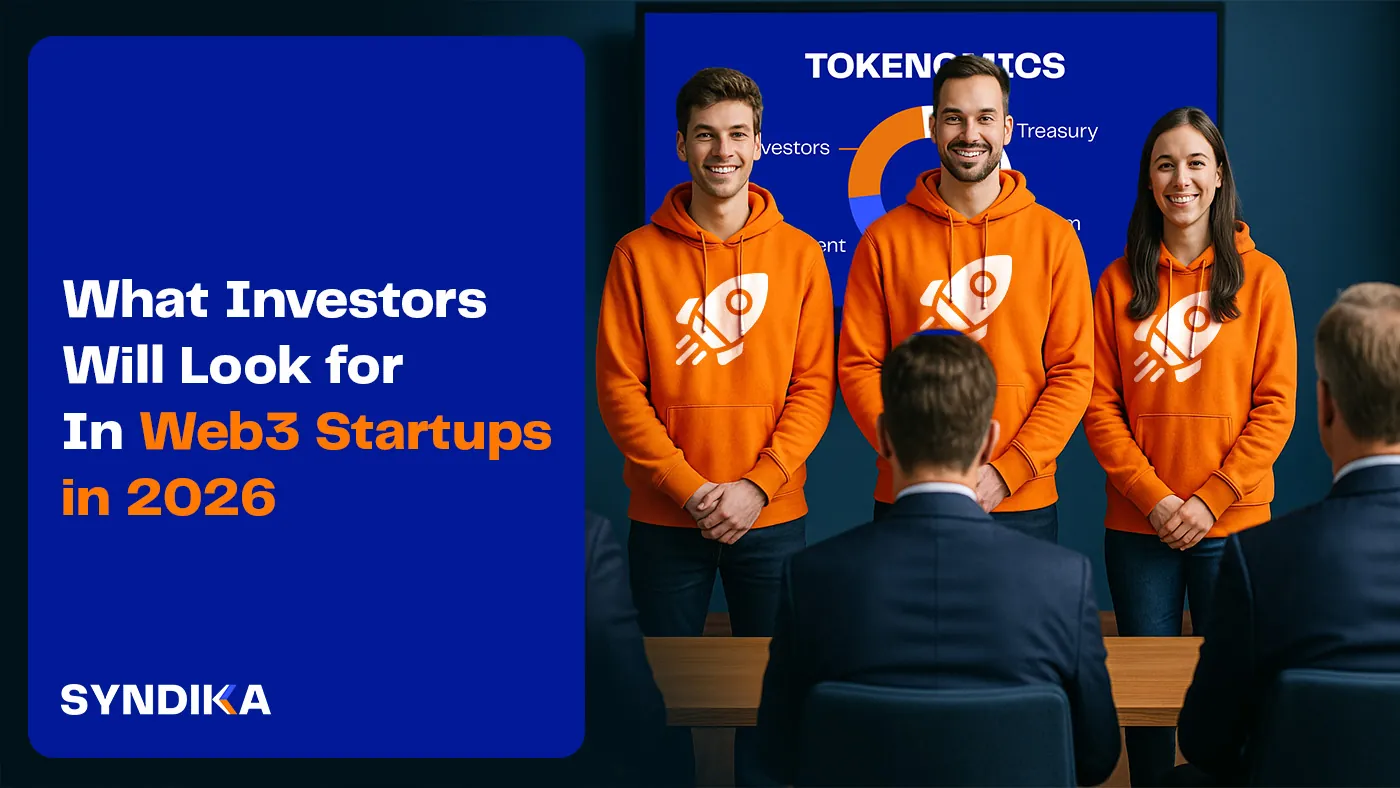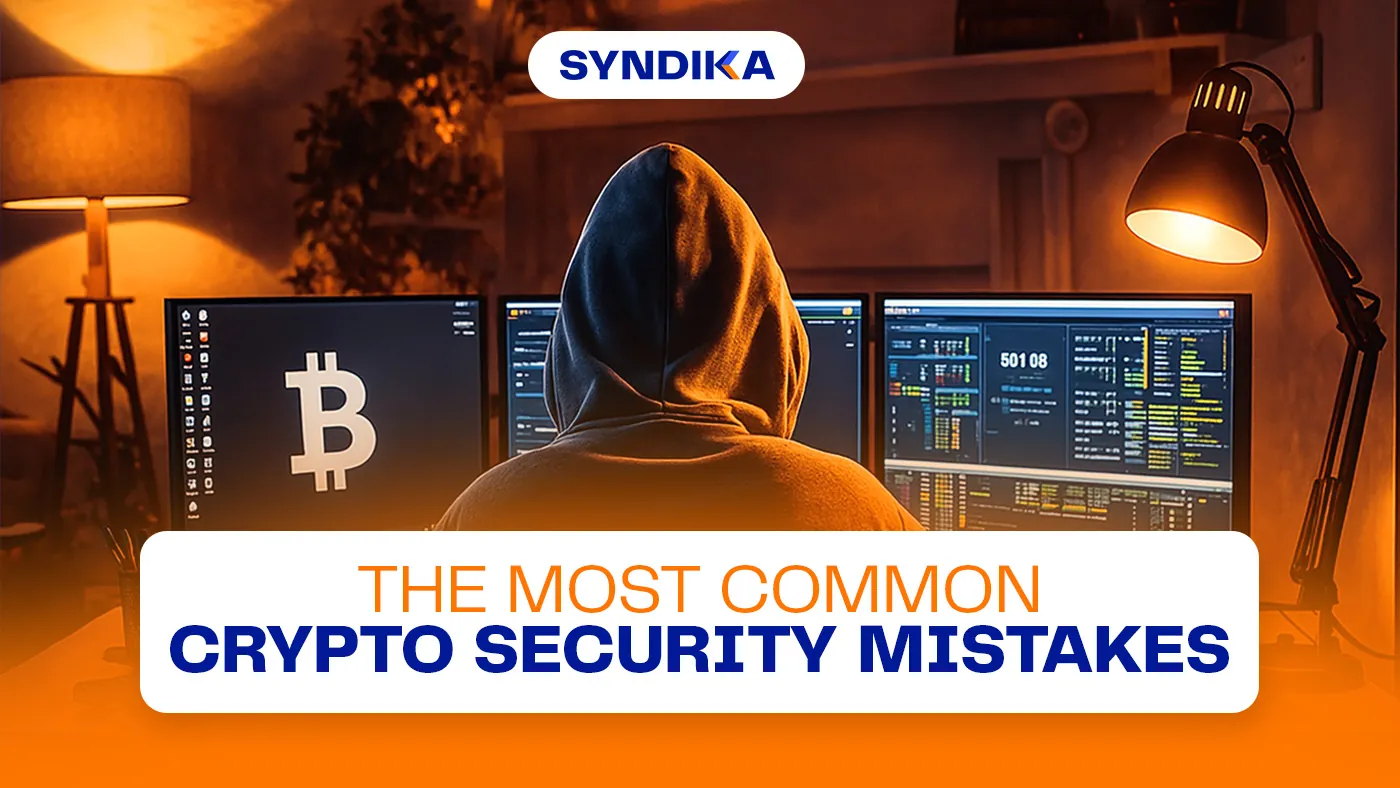
In 2025, Web3 startups raised over $3.2 billion in Q1 alone, with early-stage funding rounds dominating the pipeline.
What’s unique about Web3 is the range of fundraising options available for Web3 startups beyond traditional venture capital. From DAOs and IDOs to grant programs and venture studios, Web3 founders can now tap into community-driven capital, ecosystem funds, and token-based innovations.
Our team, in collaboration with our partner, 0X Labs, has prepared a breakdown of the most effective ways for Web3 startups to raise funding in 2025.
Let’s take a closer look at each of them…
1. Crypto VCs & Angel Investors
In early stages, crypto VC firms, crypto angel investors, and Web3 syndicates play a crucial role. Unlike traditional VCs, VC firms deeply understand token models, governance, and Web3 go-to-market strategies. They often provide not just capital, but hands-on help with tokenomics, liquidity planning, compliance, and exchange listings.
Some of the most active and influential Web3 VCs in 2025 include a16z crypto, Paradigm, Electric Capital, Animoca Brands, Variant Fund, and others supporting consumer crypto, creator tools, and onchain brands. Most of them also publish their investment theses and founder resources online.
In parallel, angel investors and syndicates are individuals who are often successful Web3 founders, developers, or DAO contributors who invest their own capital and experience into promising teams. They have launched Web3 businesses and know firsthand how to guide your startup through the Web3 journey.
2. Accelerators & Venture Studios
In the Web3 ecosystem, startup accelerators are structured programs designed to help early-stage startups go from idea to product in a short period. They offer funding, mentorship, access to investors, and educational sessions on crypto topics (Learn more about Web3 accelerators, incubators, and venture studios in crypto here).
They’re especially helpful for first-time founders or Web2 teams transitioning into Web3. In many cases, participation in a top accelerator can directly lead to pre-seed or seed funding from the program’s network. The leading Web3 accelerators include Alliance DAO, Outlier Ventures, Techstars Web3, and many more.
Venture studios, on the other hand, go a step further. Rather than just supporting startups from the outside, a Web3 venture studio works closely with Web3 founders from the ground up—sometimes even helping build the startup in-house, like Syndika. More than just a source of capital, we act as co-builders—offering tech support, business strategy, fundraising guidance, and hands-on execution.
Get to know how Syndika’s Venture Studio can accelerate your Web3 startup here.
3. Web3 Grants
For many Web3 founders, grants are one of the easiest and most founder-friendly ways to raise capital, especially in the early stages. Grants are typically awarded to teams that align with the protocol’s growth strategy and are building tools, integrations, or applications that strengthen the ecosystem. What makes grants particularly valuable is their accessibility. They usually require a short proposal, clear technical milestones, and sometimes a commitment to open-source your work. Payouts typically range from $10K to $200K, and many ecosystems offer multiple rounds of support as you hit milestones.
That’s where 0x Labs steps in. The team offers a specialized grant-funding advisory service dedicated to helping projects find and secure suitable Web3 grants. Drawing on a network of 180+ grant-managing foundations (like Ethereum Foundation, Polygon Labs, Solana Foundation, Optimism, Immutable, TON Foundation), 0x Labs guides teams from eligibility assessment through application, proposal refinement, and even direct introductions to grant officers, What we’ve learned helping dozens of founders is that a compelling narrative, not just technical milestones, often makes or breaks a grant application.
At 0xLabs, they don’t just help projects find the right grants—they also prepare them for the broader investment journey. Every grant secured adds a layer of trust and validation, making projects more attractive to VCs and institutional investors. “When done right, grants are not just funding—they’re momentum accelerators. They validate vision, create protocol alignment, and help founders stay in control,” says Corentin Cadieu, Founder and CEO of 0xLabs.
4. IDOs & Launchpads
IDO platforms and launchpads are decentralized platforms that enable Web3 projects to raise funding by launching their tokens directly to the public through an Initial DEX Offering (IDO). Unlike centralized exchange listings, IDOs are permissionless and typically take place on decentralized exchanges, giving projects more flexibility and control. Launchpads facilitate this process by offering infrastructure for token sales, whitelisting participants, managing vesting schedules, and bootstrapping liquidity.
There are a number of widely used launchpads in the space, each with its own focus and community. For example, Polkastarter supports multichain launches with a strong emphasis on curation, ChainGPT Pad specializes in AI-related projects, and Seedify is known for GameFi and Metaverse launches. Other platforms like BSCPad, Poolz, and Decubate offer token sale infrastructure across a variety of blockchains, including Ethereum, BNB Chain, and Polygon.
Via IDO platforms, startups can engage a broad base of early supporters, raise funds quickly, and create token liquidity from day one. Compared to centralized exchange listings, IDOs allow Web3 founders to retain more control over pricing, allocation, and distribution. They also foster early community building by turning users into stakeholders, making launchpads an effective go-to-market strategy for blockchain projects ready to scale.
5. DAOs & Community Funding
Decentralized Autonomous Organizations (DAOs) are community-governed entities that allocate capital based on collective decision-making—typically through token-based voting. In the context of Web3 fundraising, DAOs are becoming powerful backers of early-stage blockchain projects that align with their mission or ecosystem. Rather than relying on a centralized investment committee, DAOs fund projects through governance proposals, which are reviewed and voted on by the community. Notable examples include Uniswap DAO, Aave DAO, Arbitrum DAO, MakerDAO, and more —each deploying millions in grants and ecosystem incentives to support developers, integrations, and public goods aligned with their protocols.
What makes DAOs unique as funders is their alignment with ecosystem growth. Web3 projects that support infrastructure, integrations, or tools for a specific protocol—such as Arbitrum, Optimism, or Ethereum—can often secure support through DAO funding. In some cases, DAOs maintain structured grant councils, working groups, or ecosystem funds that operate with similar diligence to venture firms. For founders, this route offers a more transparent and mission-aligned funding option, especially when building open-source, community-first solutions.
Final Thoughts
Web3 startups today aren’t limited to pitching just a few VCs — they can raise from communities, blockchain protocols, DAOs, and launchpads. The most successful projects combine multiple funding sources over time: early grants and angels to validate the idea, Web3 venture studios to scale, and a launchpad or community sale to decentralize and expand.
Whether you’re a solo dev with a killer blockchain protocol idea or a team preparing for a major token launch, there’s a path for you.
Note: The fundraising options listed above are not presented in any particular order or hierarchy. This content is for informational purposes only and does not constitute financial advice. Always do your research and consult with legal or financial professionals before making funding decisions.



